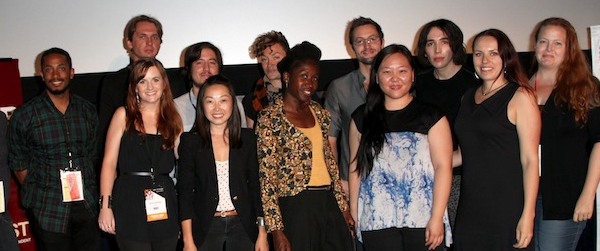How to Make Magic With Music—Talking Score at the LA Film Fest

“The magic part that moves the emotion is music.”
Emmy- and Grammy-nominated composer Ron Jones, whose TV credits include Star Trek: The Next Generation and Family Guy) summed up the way a score inflects the visceral response an audience will have to any given moment in a film. Jones moderated “Talk Score to Me,” following an ASCAP-hosted screening of the Project Involve short films at yesterday’s Los Angeles Film Festival. As part of the Film Independent artist development program for emerging filmmakers, the Fellows in the program collaborate on short films with peers. The directors took the stage following a screening of their work alongside their composers to share how they worked together to achieve the director’s vision.
Like any other collaborative relationship, the give and take between composer and director can be a complicated dynamic. Jones said it’s like an artist creating a painting and then handing the brush to a stranger to draw on it.
“We yelled a lot.” Rosie Haber, director of Relapse confided, laughing. She’d been asked that question that plagues every director, “How do you know when it’s right?”
“I learned a lot,” said director Yaa Boa Anning, explaining that one big challenge of talking about music is a language barrier of sorts. “Words are so subjective. I can say something and he can interpret it in a completely different way.” A good place to start: adjectives. Yaoboa and her composer Roy Bemelmans circled around how the original composition would feel by using words like “light,” “dreamy” and “mischievous.”
The directors discussed the kind of references they shared with their composers to help convey the kind of emotions they hoped to hear. Counter director Nicholas Bouier sent examples of music from “stripped down, revisionist” Westerns like No Country for Old Men and There Will Be Blood to his composer Amie Doherty. Another Director, Lulu Wang, said she sent Sally Mann photos to her composer Lucas Lechowski as a way to illuminate the delicate emotion she was seeking.
One of the most important things for a director to remember, Jones pointed out, is that sound can’t substitute for narrative. “Music is not there to get you from point A to point B. It’s there to support the emotion you develop in the story.”
Pamela Miller / Website & Grants Manager